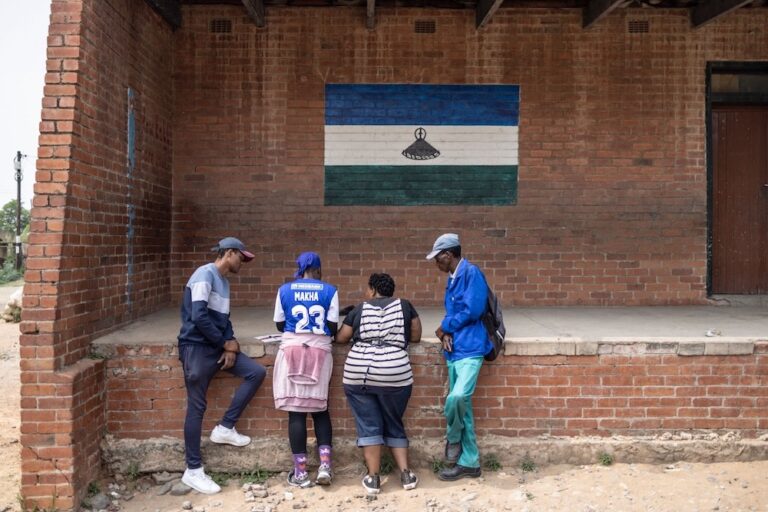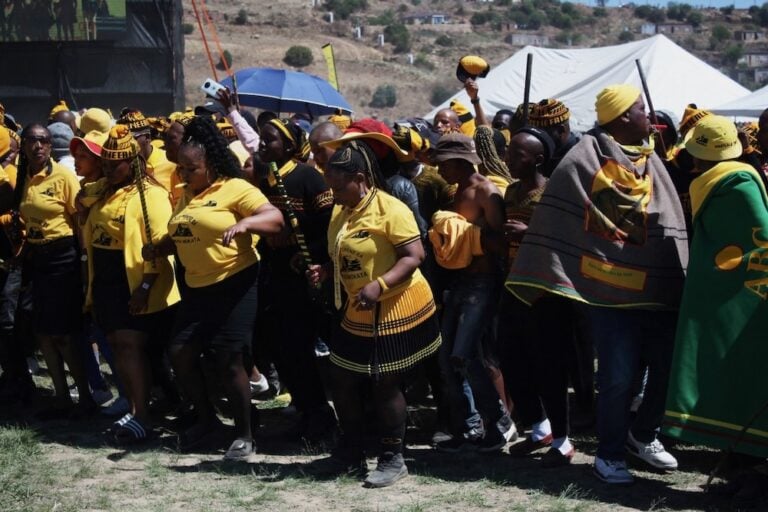(MISA/IFEX) – The editor of “MoAfrika” news magazine, Candi Ramainoane, has failed to get the Lesotho High Court to cancel a writ of execution allowing for his assets to be attached in lieu of the defamation judgement against him in December 1999. The failure of the court to stop the writ is highly questionable since […]
(MISA/IFEX) – The editor of “MoAfrika” news magazine, Candi Ramainoane, has failed to get the Lesotho High Court to cancel a writ of execution allowing for his assets to be attached in lieu of the defamation judgement against him in December 1999. The failure of the court to stop the writ is highly questionable since the judgement against Ramainoane is currently under appeal, although it has yet to come before the court.
Ramainoane was served with the writ in May 2000. The writ, which was signed by the registrar of the High Court and Court of Appeal, directed a court official to attach the movable goods of Ramainoane and realise “by public auction” a sum of 139,288 Maloti (about US$20,000) making up the judgement debt and costs of the plaintiff, Moeketsi Sello.
On receiving the writ, Ramainoane immediately applied to the High Court for a stay, since the matter was still going to appeal. However, on 9 June, Justice Mahapela Lehohla rejected the application. No immediate reasons were given for the court’s ruling. The ruling means the sheriff of the court can attach Ramainoaneâs goods at any time, including the equipment at the private radio station he founded.
No date has been set for the appeal hearing.
Background Information
On 22 December, the Lesotho High Court found Ramainoane liable for defamation in a civil action brought by a current member of parliament, Moeketsi Sello. The action followed an anonymous letter-to-the-editor which was published in a September 1996 edition of “MoAfrika”.
The letter in question contained statements to the effect that the former treasurer of the Basotholand Congress Party (BCP), Shakhane Mokhehle (currently the minister of law, justice and constitutional affairs), had embezzled party funds and used them together with the plaintiff while the two were living in exile in Botswana. The letter also stated that the two (Mokhehle and Sello) had bribed Botswana police who had arrested them for illegal diamond dealing in Botswana in 1980. These “facts”, the author of the letter said, were quoted from a book entitled “Lesotho and the Struggle for Azania”, written by Bernard Leeman.
Ramainoane’s refusal to disclose the name and particulars of the author of the published letter led to the suit.
The court concluded that Ramainoane was unable to prove the truth of the statements and to show that what was said in the letter was an expression of opinion and was therefore unable to defend his arguments of justified defamation and fair comment.


